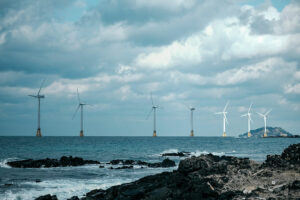THE Asian Development Bank (ADB) has approved a combined $2.85-million package for the Philippines to address climate change and expand access to renewable energy.
The package was approved on Nov. 28, the bank said on its website on Tuesday.
The Energy Transition Support Program package includes a $1.85 million grant from the ADB’s Technical Assistance Special Fund (TASF-other sources) and a $1 million grant from the Clean Energy Fund under the Clean Energy Financing Partnership Facility.
“The technical assistance (TA) will prepare sovereign-financed energy projects and programs of ADB in the Philippines, conduct due diligence for proposed loans, and help enhance project and program management capacities of the executing and implementing agencies,” the ADB said in a loan document.
It will help implement key priorities of the ADB’s country partnership strategy for the Philippines, 2024-2029, and build up the energy project pipeline to help the ADB achieve its climate finance target of $100 billion by 2030.
These include tackling climate change, building climate and disaster resilience, and enhancing environmental sustainability.
In addition, the package will help establish the Geothermal Resource De-risking Facility to stimulate the second wave of geothermal investment in the Philippines.
The facility will supply contingent convertibles up to 50% of the total cost of drilling to reduce investment risk at the geothermal development chain exploration stage.
The Department of Energy will be implementing the geothermal funding set for an ADB loan commitment in 2025.
The package also supports the Offshore Wind Port Development Project, which aims to help the Philippines develop essential infrastructure for offshore wind farms.
The Wind Port project involves preparing feasibility studies and engineering plans to repurpose 10 ports to specialize in servicing offshore wind farms. The proposed project is set to receive an ADB loan commitment in 2027.
The package also supports the National Total Electrification Support Program, whose goal is universal access to electricity in the Philippines by 2028 through investments in distribution, transmission, and renewable energy systems in missionary areas.
Also supported is the Energy Efficiency in Public Buildings Program to facilitate the rollout of energy-efficient lighting, air conditioning, and rooftop solar photovoltaic systems in public buildings.
“The program may potentially be extended to smart metering and electric vehicle charging infrastructure,” according to the loan document. — Aubrey Rose A. Inosante

